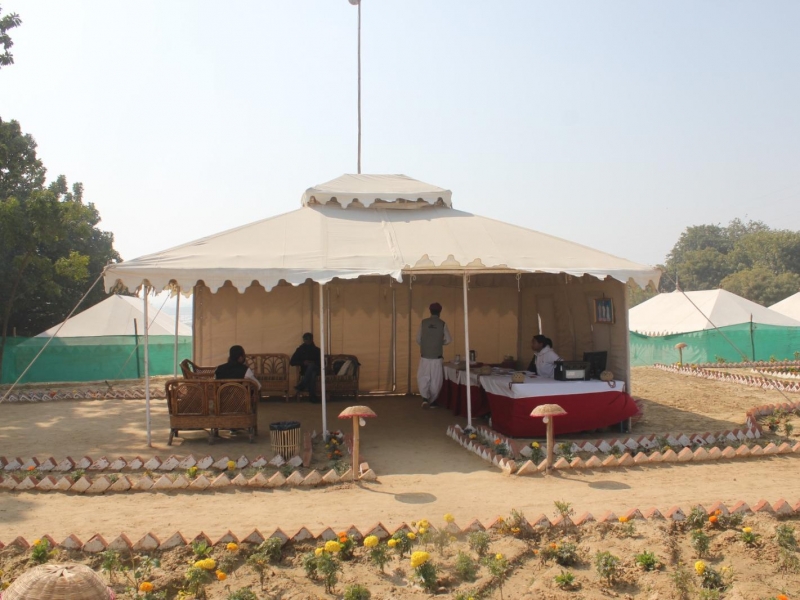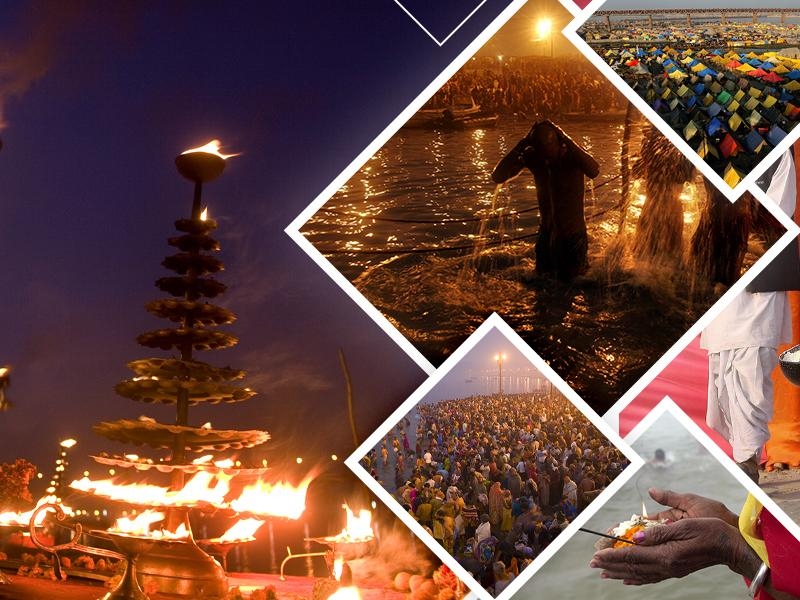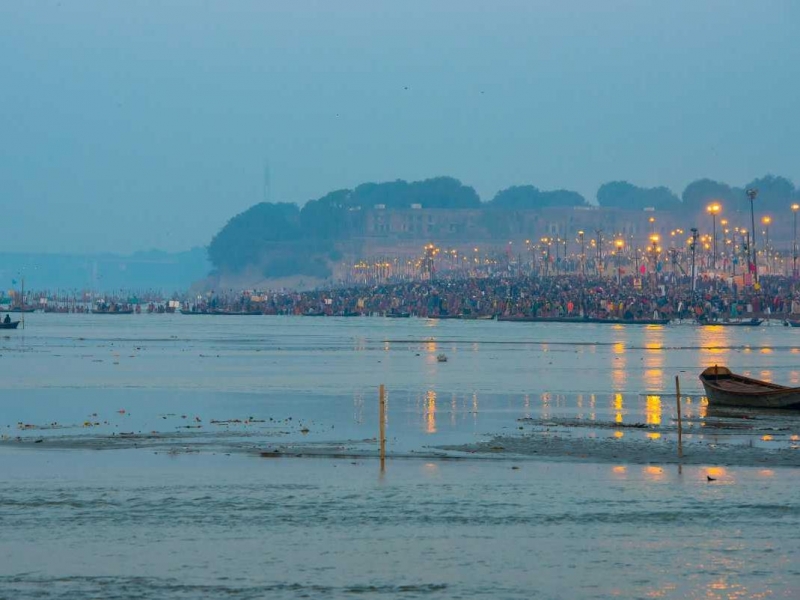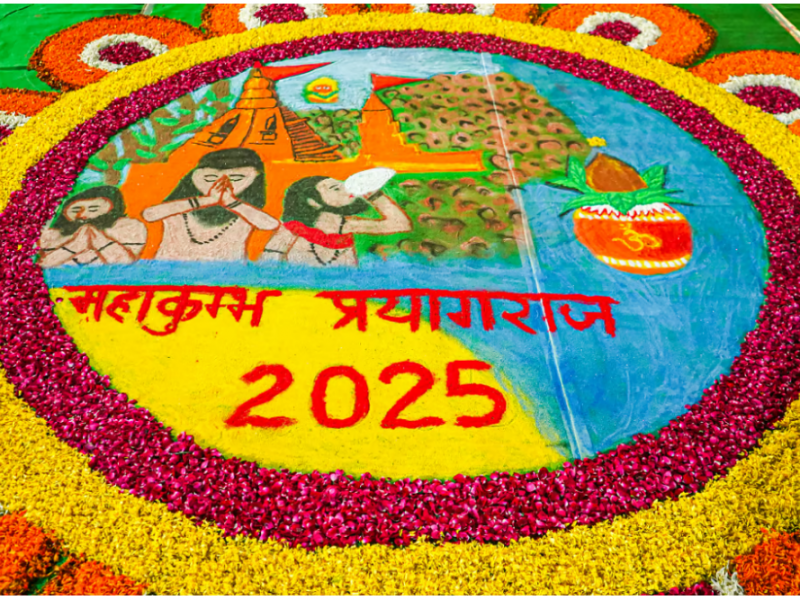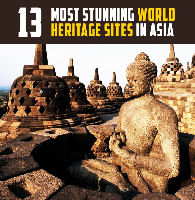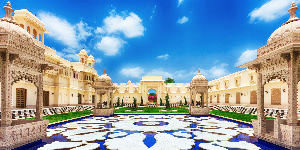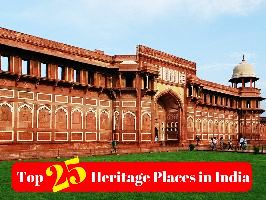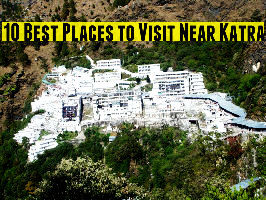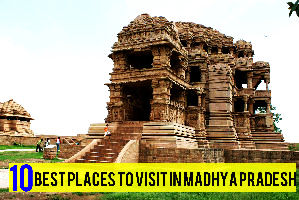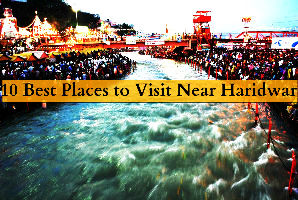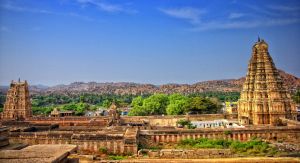Today I recall ?She walks in beauty, like the night Of cloudless climes and starry skies? . Folks you must be thinking hard as to what are we upto? Today we are going to discuss the beauty of some majestic World Heritage sites in Asia. These sites are really an eyeful to enchant any visitor.

India stands among the top countries that have the maximum number of UNESCO heritage Sites. The places declared as Heritage Sites by UNESCO are those defined sites that belong to all the people of the world irrespective of their origin and territorial locations. The rich Indian culture and traditions offer 35 such sites to the world that hold high importance. These 35 sites are divided into 27 cultural sites and 8 sites that hold natural importance. Here is a detailed list of these sites, come and explore the rich assets of India that we offer to the world.
1. Nalanda Mahavihara
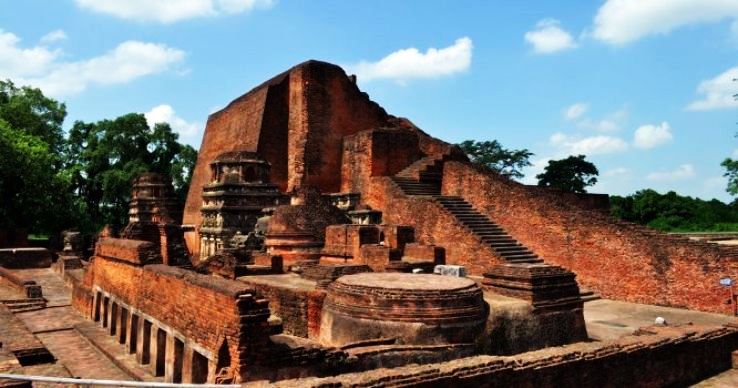
The Nalanda Mahavihara in Bihar was once the prime center of education which was celebrated for more than 800 years. The archaeological site was built back in the 3rd century and showcases the amazing architecture of the period. The period it shone was from 3rd century to the 13th century. The remains of the stupas, domes, shrines can be admired in the college campus. It was a renowned Buddhist Monastery and is said to be the place from where Buddhism was spread all over the world.
2. Khangchendzonga National Park
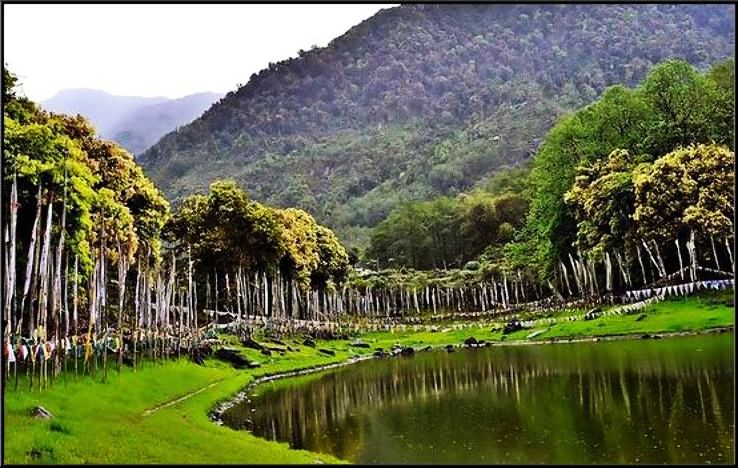
This national park was declared a world heritage site in 2016. It is located in the North-west region of the Himalayas in Sikkim, India. It is also known as Khangchendzonga Biosphere Reserve the park has an elevation of 1829 m to 8500m from the sea level. It capacitates some of the best trekking routes in India and also Khangchendzonga peak which is the third highest peak in the world. The Flora and fauna of this park are mesmerizing. You can also spot the white snow leopard that is a very rare sight.
3. Great Himalayan National Park
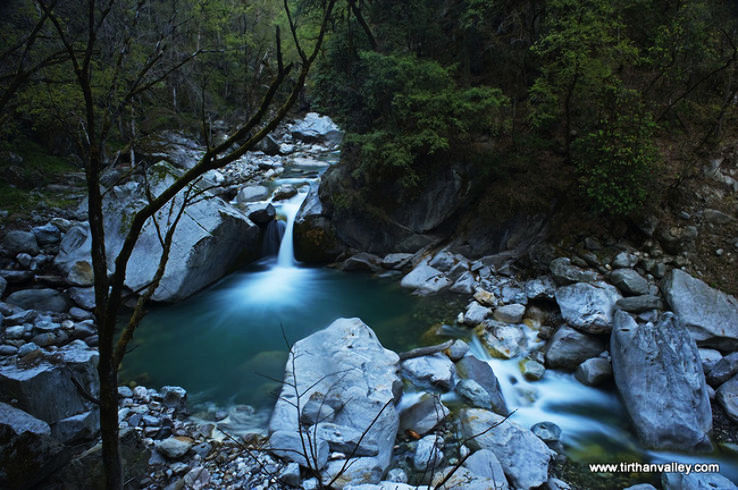
Located in the Kullu region of Himachal Pradesh, the Great Himalayan National Park is one of the most celebrated National Parks of India. It is spread over 754.4 Kilometers. The park owns the origin of many rivers from water melt or glacier melts water. These rivers are primarily the tributaries of Indus. Blue sheep, snow leopard, Himalayan brown bear, Himalayan Tahr, musk deer spruces, horse chestnuts and huge alpine meadows are some of the rare species of animal and plants that are found in this park. The park homes more than 375 species of animals.
4. Rani Ki Vav, Patan
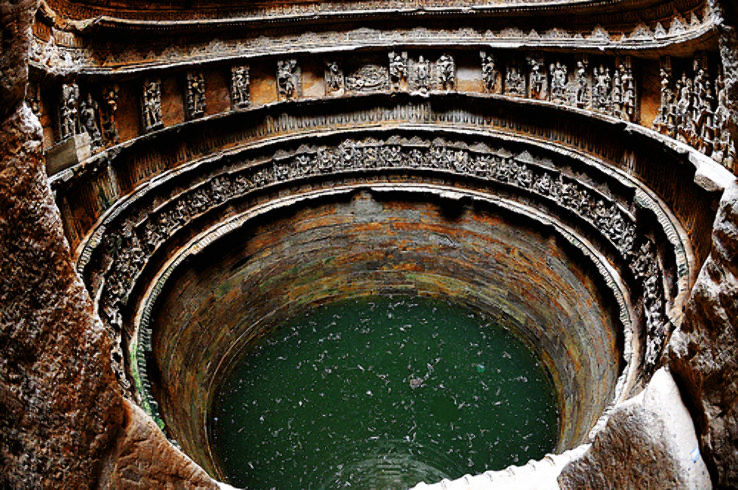
An explicit example of the ancient architectural craftsmanship of India the Rani Ki Vav was built in the 3rd century BC. It means the well of the Queen and was built in the memory of the second ruler of Solanki Dynasty by his wide Udayamati. The architectural splendor and the exquisite art of this place have m,ade it eligible to qualify as a world Heritage Site. It has beautiful stone carvings on the walls and the sculptures add to its splendor.
5. Group of Monuments at Hampi
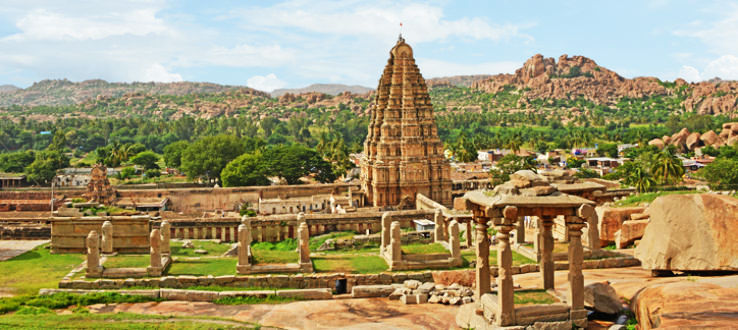
The Group of monuments at Hampi, are the ruins of the kingdom of Vijaynagar which was renowned for its prosperity and splendor. The ruins are the exemplary art of the Dravidian Style and showcase the best architecture of the era. Narasimha, Ganesa, Hemakuta group of temples, Krishna temple complex, Lotus Mahal complex, Achyutaraya temple complex, Vitthala temple complex, Pattabhirama temple complex, several purans or bazaars surrounding the temple complex, and the living quarters and residential areas collectively form the Group of Monuments at Hampi.
6. Group Of Monuments at Pattadakal
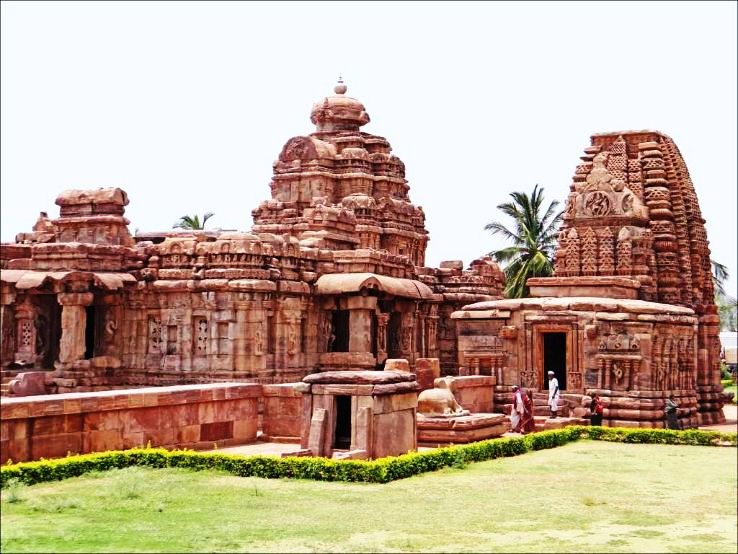
This UNESCO Heritage Site is celebrated for its Chalukya style of Architecture. This style was first originated in Aihole and later got blended with Dravidian and Nagara style of architecture. The group consists of 8 temples dedicated to Lord Shiva and many to Jainism. A few important sites of the group are Virupaksha Temple, Chandrashekhara Temple, Sangameshwara Temple, Ganga Nath Temple, MallikarjuTemple, Kashivishwanaath Temple, Jain Temple, etc.
7. Khajuraho Group of Monuments, Monuments
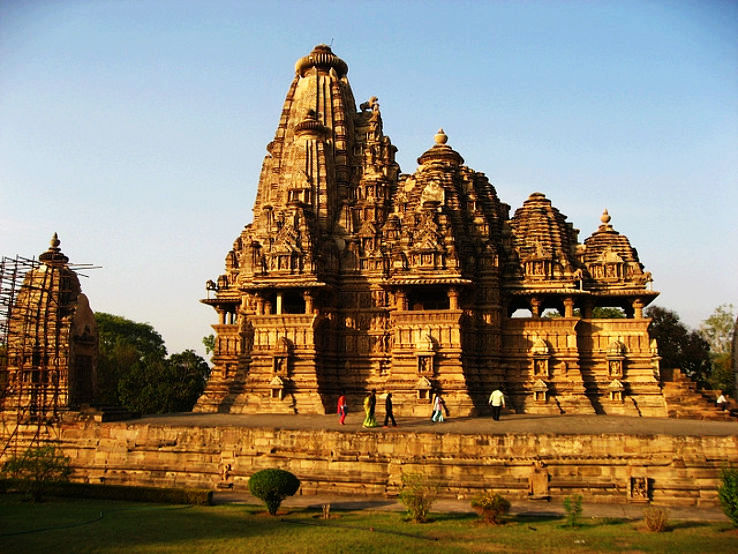
Applauded for its mesmerizing sculptures the Khajuraho Group of Monuments is located in Madhya Pradesh. It showcases many beautiful Hindu and Jain Temples and hundreds of erotic sculptures that form the core part of its splendor. The form of architecture is Nagara. The sculptures very intricately represent the cultural wealth of ancient India.
8. Hill Forts
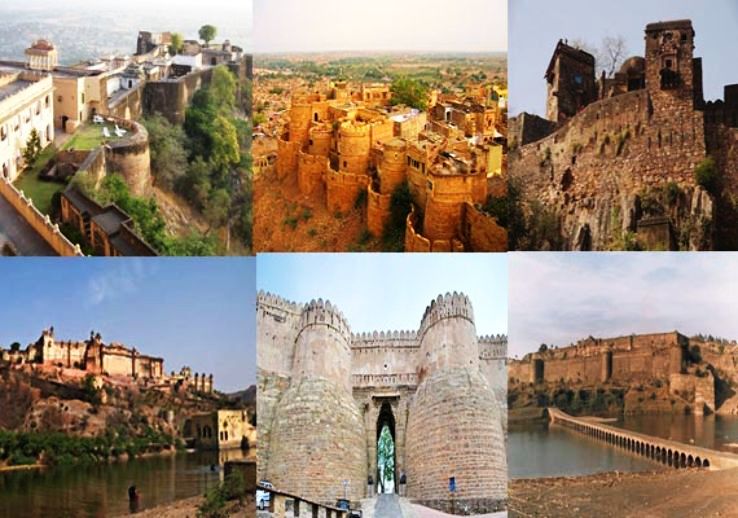
The hot land of Rajasthan boasts of the Hill Forts that represent the terrain defense style of the Maharaja of the state. The forts are 6 in numbers and are located at elevated height than the city. The strength of Rajputana army can easily see through the expanse of these Forts. Some of these forts were as large that they used to capacitate the entire city inside them. The forts that make the heritage sites are Chittorgarh, Kumbhalgarh, Ranthambore fort, Gagron Fort, Amber Fort and Jaisalmer Fort.
9. Mahabodhi Temple Complex of Bodh Gaya
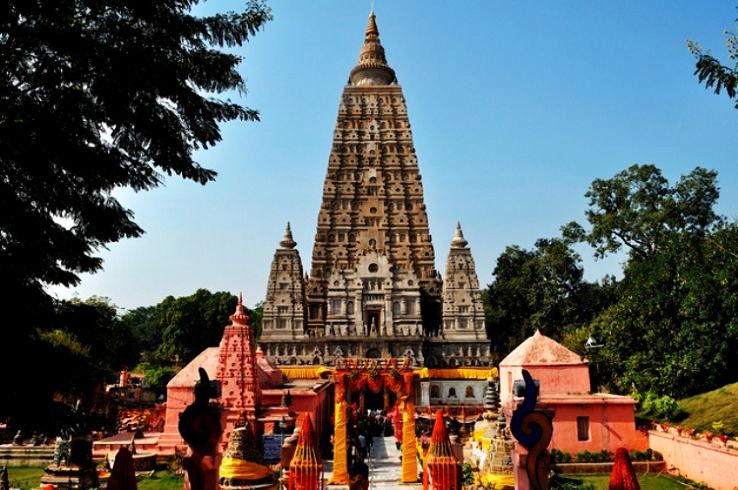
Bodh Gaya is celebrated as the place where Gautam Buddha attained enlightenment and found Buddhism. It is located at a distance of 96 Kilometers from Patna, Bihar. The Temple was built during the rule of Samrat Ashoka, in 250 BCE. The temple complex comprises of The Mahabodhi tree, the Vajrasana, Mahabodhi Temple which is 50 m tall, and 6 other sacred sites of Buddhist importance.
10. Churches and Convents of
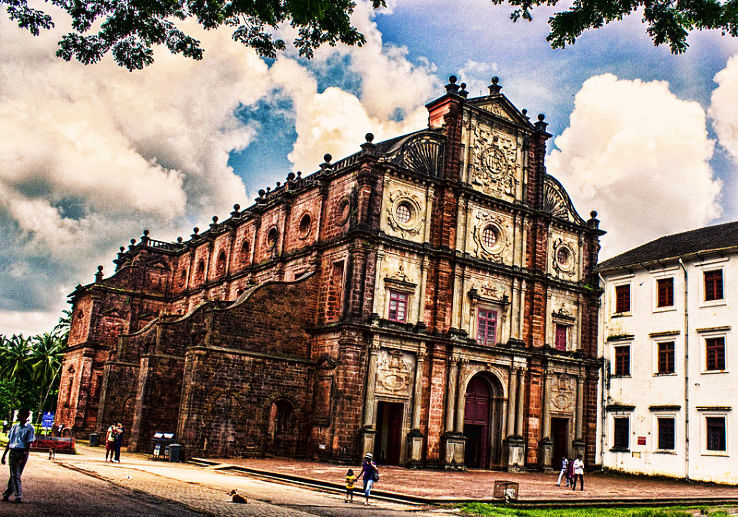
Built during 16th and 18th century the Churches and Convents of Goa are the art of the Portuguese colonial rulers. They are mainly in the Old Goa region of the state also known as Velha Goa. The Basilica of Bom Jesus is the main site of this group which homes the tomb of St. Xavier. The total number of the churches and convents was once recorded to be 60 but many of them have decayed with time.
11. Buddhist Monument at Sanchi
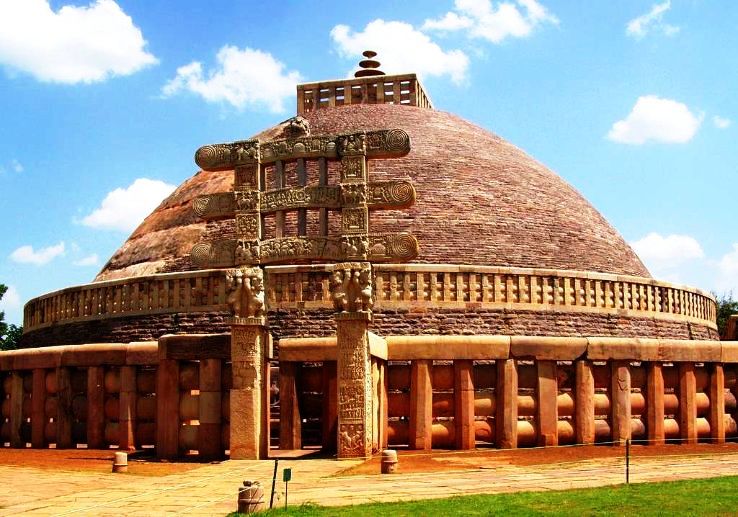
The oldest stone structures of India, the Buddhist Monument at Sanchi are related to the Samrat Ashoka. He commissioned the construction of this site in the 3rd century and thus the Sanchi Stupa came into existence. The stupa was renovated during the Satavahana Period. The stupa, monolithic pillars, tombs, and monasteries form the core of this monument and represent the great craftsmanship of the ancient India.
12. Chola Temples
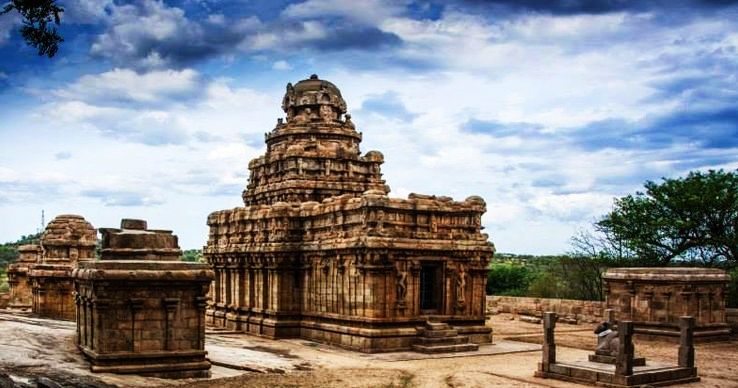
This includes Brihadisvara Temple, Brihadisvara Temple, Thanjavur, Gangaikonda cholisvaram , Darasuram and Airavatesvara Temple. All these temples were built during the Chola Rule and are located in the Southern part of Tamil Nadu. The temple Gangaikonda cholisvaram is the main temple out of all both religiously and architecturally. The temples are the living testimony of the Chola art and sculpture.
13. Group of Monuments at Mahabalipuram
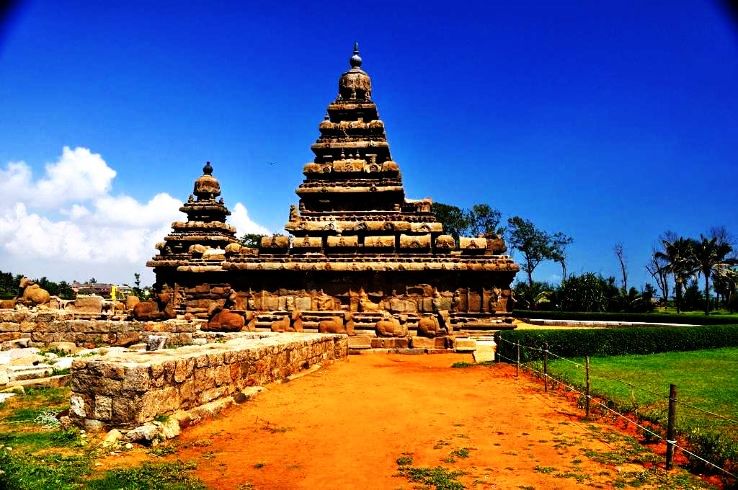
Located on the Coromandel Coast of Bay of Bengal, the group of monuments includes The Pancha Rathas Temples, Cave Temples of Mahabalipuram, Ganesha Ratha, Structural Temples including the Shore Temple and the Descent of the Ganges and the Olakkannesvara Temple. The temples represent the Rath architecture of the Pallava rule which forms an integral part of Indian culture. It also comprises of the largest open-air-bas-relief in the world.
14. Bhimbetka
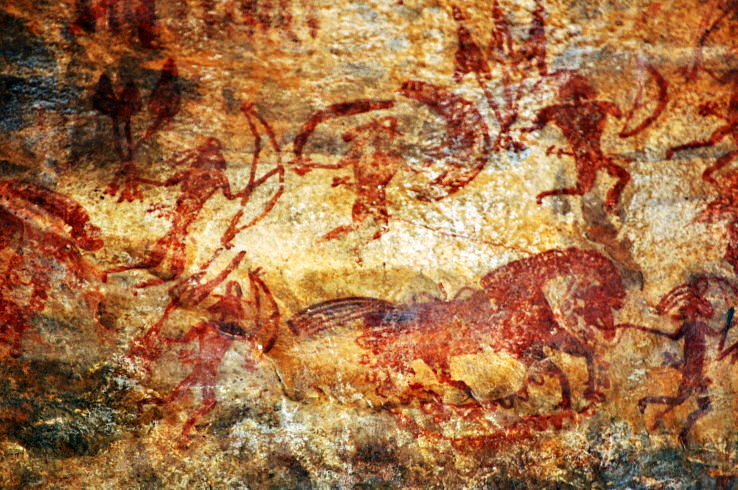
It is the place where the early signs of humanity in India were discovered. Located in the foothills of Vidhyanchal region the heritage site explains the art of the Mesolithic period. The art here lays the foundation of the South Asian Stone Age. The art and the landscapes are mesmerizing and very splendidly explain the living of that period.
15. Ajanta Caves
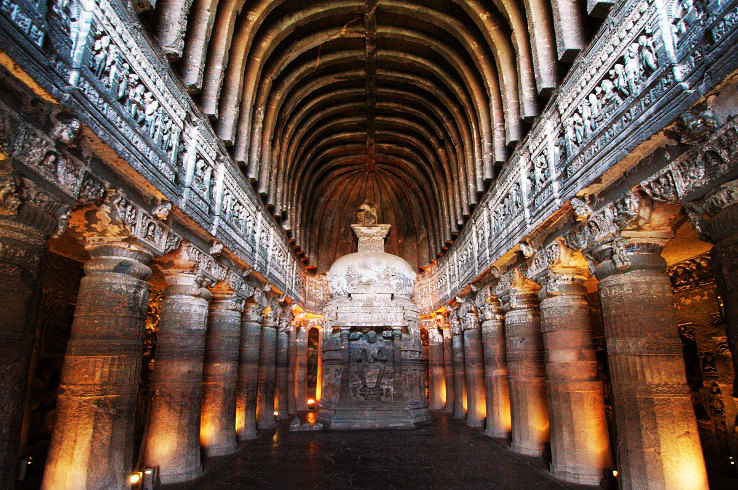
The caves are dated back to 2nd century BCE to 650 CE and are some exquisite masterpieces of the era. They consist of 31 Buddhist rock cut caves, monuments, and paintings. The place marks the inception of the Indian classical art which can be seen in the artistic illustration of the life of Buddha on the walls of the caves.
16. Ellora Caves
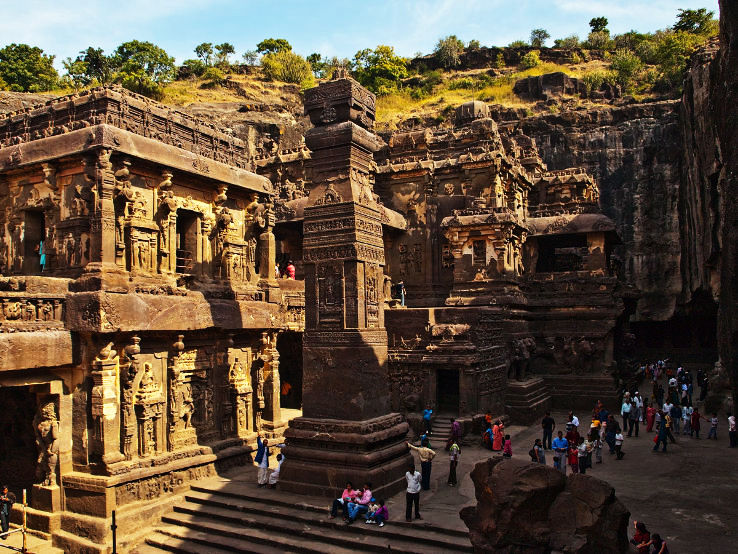
The caves are of great archaeological importance and are located in Aurangabad. The caves are dated back to 600 to 1000 AD and very beautifully represent the life of that time through the mesmerizing sculptures and the paintings on the walls. The paintings primarily relate to Hinduism, Buddhism, and Jainism.
17. Elephanta Caves
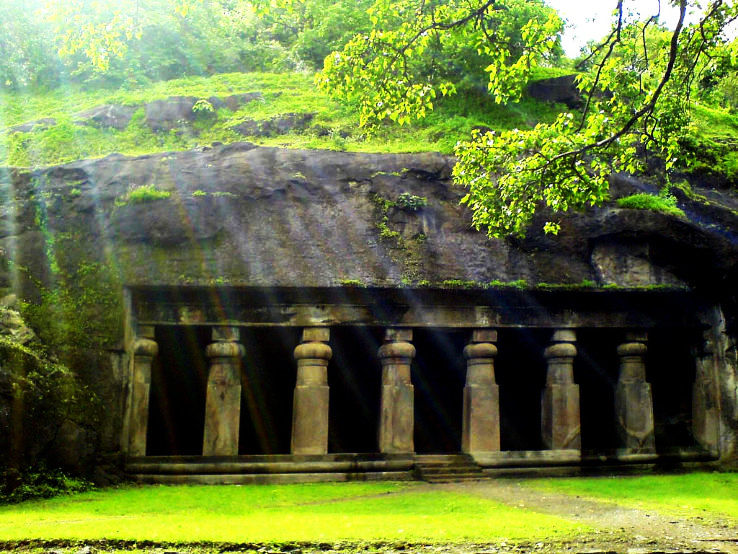
The chain of caves is located in the Elephanta Island which is also known as Gharapuri. The caves have many sculptures and paintings that sing the songs of the rich architectural heritage of India. The rock cut sculptures are primarily a representation of Lord Shiva. The caves represent the three main roles of Lord Shiva as the Creator, the preserver, and the destroyer.
18. Kaziranga Wildlife Sanctuary

Located in the North East region of India, the Kaziranga Wildlife Sanctuary is the home of many endangered species of animal and plants, especially of Rhinoceros. The sanctuary is located in the plains of the Brahmaputra River and consists of grasslands, forests, and streams and lakes. The prime endangered species found in this sanctuary are Rhinoceros, hoolock gibbon, capped langur, tiger, sloth bear, leopard, Ganges dolphin, otter, wild boar, water buffalo, gaur, sambar, swamp deer, hog deer and Indian muntjac.
19. Manas Wildlife Sanctuary
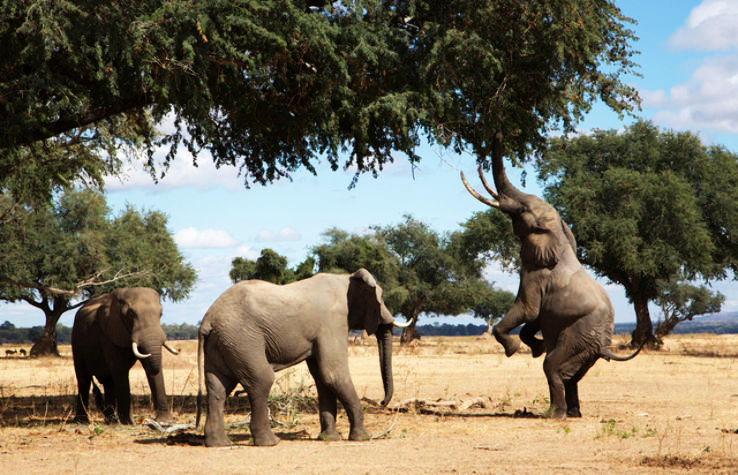
Manas Wildlife Sanctuary is located in Assam and is named after the river Manas. It is the home to many endangered plants and animals and is full of serene landscapes, wetlands, and natural surroundings. Assam Roofed Turtle, Hispid Hare, Golden Langur and Pygmy Hog are few of the species residing here.
20. Nanda Devi National Park and Valley of Flowers
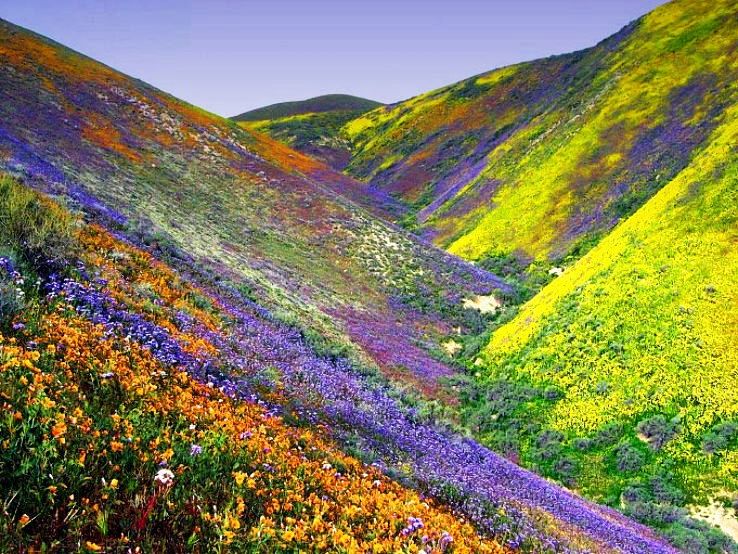
Nanda Devi is the highest peak of India as well as Uttarakhand. The other adjacent peak is known as Sunanda Devi and has great mythological importance from the age of Puranas and Upanishads.
The Valley of Flowers stretch up to 8 kilometers and is celebrated for the bedsheet of flowers that covers the entire valley. There are many varieties of flowers in this valley that makes this place mesmerizing.
21. Humayun’s Tomb
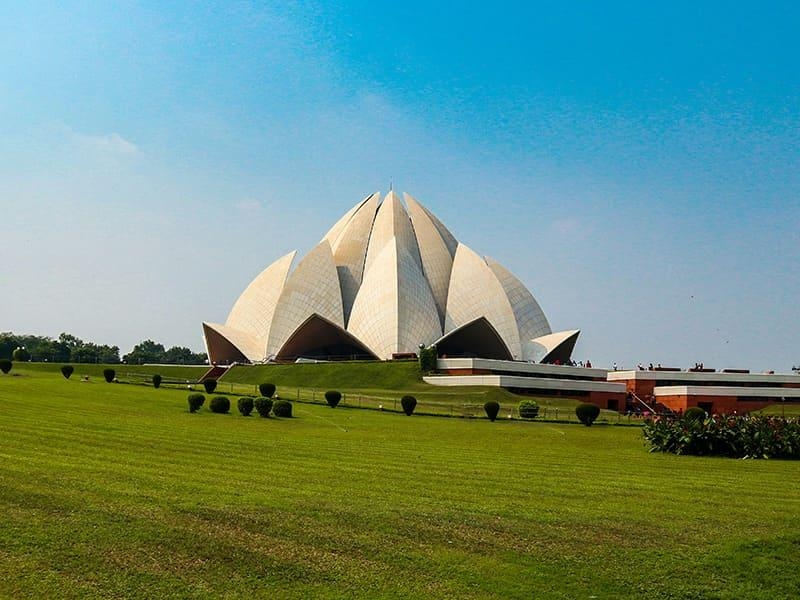
The tomb was built by Begum Bega who was the widow of Shenanshah Humayun, a Mughal emperor of India in the memory of her deceased husband. The Tomb was built in between the year 1565 to 1572. The tomb is made of red sandstone and is an exemplary representation of Mughal Architecture. It has many water channels which make it more awe-inspiring. The tomb is also known to be the precursor of Taj Mahal.
22. Red Fort
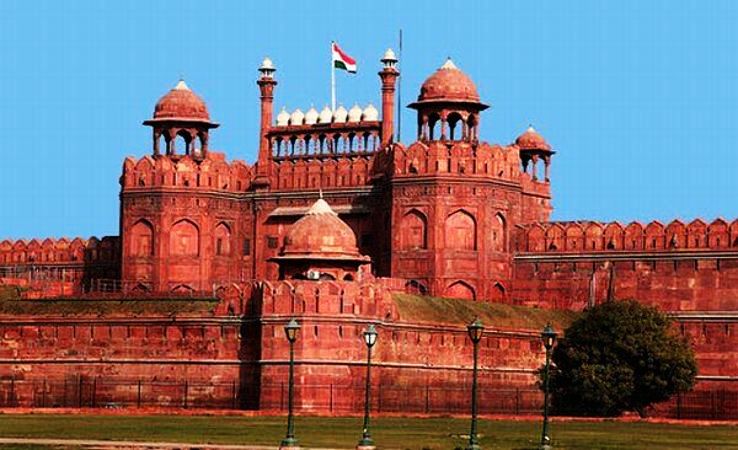
Red Fort was built during the Mughal rule by Shah Jahan. It was when he decided to shift the capital of the nation from Agra to Delhi that Red Fort came into existence. Shah Jahan was the one who pampered and excelled the Mughal art and architecture the most and Red Fort puts forward the perfect example of this. It homes Diwan-e- aam and Diwan-e-khaas and is entirely made of Red Sandstone; and this is where the name comes from. Today Red Fort is the place where the Prime Minister of India hoists the National Flag on the Independence Day.
23. Taj Mahal
_1477653788i230.jpg)
Taj Mahal is one of the Seven Wonders of the World. Made of white marble the epic building was made by Shah Jahan in the memory of his third wife Mumtaz Mahal. The building is estimated to cost around 32 million rupees and took 16 years to complete. A true representation of the Islamic and Mughal architecture, Taj Mahal witnesses lakhs of tourists every year. The beauty of this place accentuates in the moonlight and it is the best time to admire its glamor.
24. Mountain Railways
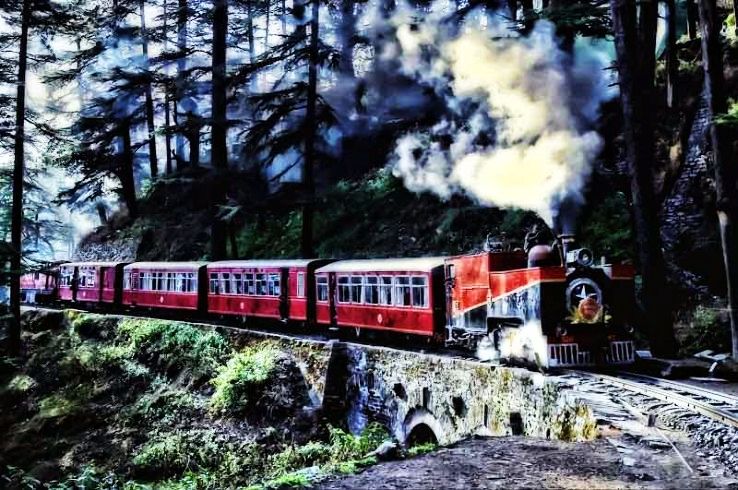
This comprises of Kalka- Shimla Railways, Darjeeling Himalayan Railways, and the Nilgiri Mountain Railways. The toy train accentuates the beauty of the surroundings when you travel in them to these hill stations. Built during the British rule these toy trains are indeed a marvel of engineering.
25. Qutub Minar and its monuments
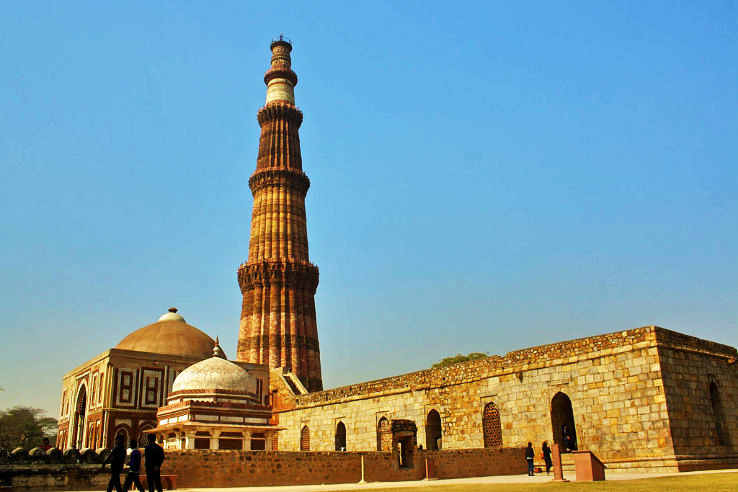
Qutub Minar is the first building of the Muslim Rule in India. It was built by Qutub-ud-din Aibak in 1193 and is renowned for its amazing height and architecture. It measures 73 meters and has splendid carvings on it.
26. Fatehpur Sikri

Once the capital of Mughal Empire, Fatehpur Sikri is in Agra. The decision of shifting the capital was taken by Shah Jahan because of the unrest in the North-West region and the lack of water. It is an explicit example of Mughal architecture and one of the best residential buildings in India.
These are the rich heritages of India that represent the cultural, archeological and natural importance of the country.
Recommended For You
-
 Best Places to Stay During Kumbh 2025: From Tents to Luxury Hotels
Best Places to Stay During Kumbh 2025: From Tents to Luxury Hotels
-
 The Ultimate Guide to Maha Kumbh Mela 2025 at Prayagraj
The Ultimate Guide to Maha Kumbh Mela 2025 at Prayagraj
-
 Understanding the Importance of the Sangam: The Confluence of Faith
Understanding the Importance of the Sangam: The Confluence of Faith
-
 The History and Mythology of Kumbh Mela: A Journey Through Time
The History and Mythology of Kumbh Mela: A Journey Through Time
-
 Best Places to Eat in Goa: Indulge in a Culinary Delight
Best Places to Eat in Goa: Indulge in a Culinary Delight
-
 The Future of Drone Tourism: How Drones are Changing the Travel Industry
The Future of Drone Tourism: How Drones are Changing the Travel Industry
